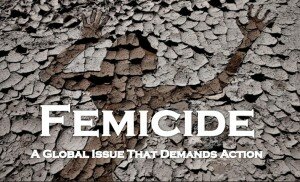Summary of the Civil Society Hearing at the 24th Crime Commission

– 24th session of the Commission on Crime Prevention and Criminal Justice –
9:30 – 11:30 a.m., 19 May 2015, M3
2015-05-19 Summary_Civil Society Hearing
At the Thirteenth United Nations Congress on Crime Prevention and Criminal Justice (13th UN Crime Congress) , the Alliance of NGOs on Crime Prevention and Criminal Justice (the Alliance) organized a Civil Society Forum, whose outcome was the Doha Civil Society Declaration. As a follow-up to this, a Civil Society Hearing (CSH) was held on the margins of the 24th session of the Commission on Crime Prevention and Criminal Justice (Crime Commission). The purpose of the event was to identify ways and means in which civil society and Member States could work together to implement the Doha Civil Society Declaration1 and the Doha Declaration2 adopted by Member States.
H.E. Mrs. Ol’ga Algayerová, Ambassador of the Slovak Republic to the United Nations in Vienna, moderated the event and opened the discussion by highlighting the role of non-governmental organizations (NGOs) and academia in the development, implementation and monitoring of crime prevention and criminal justice programs and policies and in promoting the rule of law. Ambassador Algayerová also drew attention to the active participation of civil society in the 13th Crime Congress, as illustrated in the adoption of the Doha Civil Society Declaration.
Mr. Yury Fedotov, Executive Director, United Nations Office on Drugs and Crime (UNODC), also mentioned the proactive engagement of civil society in the 13th UN Crime Congress. Mr. Fedotov highlighted that civil society was a crucial partner to Member States in achieving the goals they had set forth in the Doha Declaration. The efforts of civil society to promote a culture of lawfulness, including through the Doha Civil Society Declaration, were considered very important. Mr. Fedotov noted that UNODC worked worldwide and on all UNODC mandates with a larger number of NGOs each year –over 460 NGOs at present. He also stressed that public participation was crucial to promoting a culture of lawfulness and ensuring the success of the post-2015 development agenda, including of sustainable development goal (SDG) 16.3
H.E. Mr. Luis Alfonso De Alba, Ambassador of Mexico to the International Organizations in Vienna and Chairperson of the 24th session of the Crime Commission, welcomed the opening statement of Mr. Fedotov, which highlighted the importance of civil society. Ambassador De Alba stressed the importance of working together with civil society to implement the Doha Declaration. He also underlined that the time had come for the United Nations to work more and more with civil society. Ambassador De Alba indicated that, as Chairperson of the 24th session of the Crime Commission, he could open some doors and expressed hope that civil society would take advantage of this opportunity to engage in a constructive debate with Member States, in order to identify areas of mutual support. Ambassador De Alba also drew attention to the need to improve communication, in particular by reaching out to NGOs in developing countries, through webcasting meetings such as the CSH and organizing similar joint Member States-civil society meetings throughout the year. He invited civil society to provide feedback to the proposed themes4 for the future sessions of the Crime Commission, on the road from Doha to Japan. This would mean a joint Member State-civil society program for the next five years, wider in scope, not only thematic, but also in terms of participation. Based on his extensive career at the UN, Ambassador De Alba noted that the UN had public and private meetings and that only the private meetings were closed to civil society. He underlined that, no other meetings, unless otherwise decided, should be closed. Ambassador De Alba concluded by inviting civil society representatives to attend all meetings of the UN, especially those under his own responsibility, unless those meetings were explicitly closed.
Dr. Michael Platzer, Chairperson, Vienna Alliance, suggested that a CSH should be organized on the margins of the annual sessions of the Crime Commission and that it could be webcast. Mr. Platzer pointed out to a number of issues where NGOs can be instrumental in terms of advocacy and providing practical assistance, as outlined in the Doha Civil Society Declaration: 1) third-party participation in monitoring the implementation of the sustainable development goals (SDGs); 2) enhanced NGO participation in UNTOC and UNCAC related events; 3) enhanced focus on victims; 4) universal abolition of the death penalty; 5) proportionality of sentencing for drug related crimes; 6) protection for the rights of migrants, including assistance to migrants at home and in the host countries (e.g. reducing barriers and alternatives to repatriation); 7) enhanced participation of women and youth; 8) provision of legal aid; 9) combatting criminalization based on status and/or identity (e.g. LGBT); 10) alternatives to imprisonment; 11) femicide/the targeting of women in conflict; 12) implementation of the UN Standard Minimum Rules for the Treatment of Prisoners; 13) effective protection of whistleblowers, including of journalists; 14) one UN/ more effective inter-agency cooperation; and (15) effective implementation and monitoring of the Doha Declaration, together with all UN agencies and other relevant stakeholders.
Mr. Yury Fedotov agreed with the need for a follow-up to the adoption of the Doha Declaration and indicated that Doha was not the final destination, but the start of the journey to Japan. Mr. Fedotov looked forward to the support of the Member States and civil society in developing and implementing the roadmap for this journey.
Mr. Ugi Zvekic, former Ambassador of Serbia, representative of the Global Initiative against Transnational Organized Crime and the Academic Council on the United Nations System (ACUNS), indicated the need to revive the Palermo Convention (UNTOC) and other crime prevention and criminal justice instruments in response to new criminal threats. He identified the following solutions: (i) a strategic security framework and (ii) global dialogue, such as enhanced cooperation in the implementation of UNODC international conventions and between UN bodies. Mr. Zvekic mentioned the partnership of the Human Rights Council with civil society was a best practice to follow by fellow international organizations. He also underlined the readiness of civil society to participate in the implementation of the post-2015 development agenda.
Text of the intervention on behalf of Global Initiative Against Transnational Organized Crime by Ugliesa Zvekic
Dr. Anna Alvazzi del Frate, Research Director, Small Arms Survey, indicated that progress had been made in the last 10 years in addressing the nexus between security and development. She referred to SDG 165 and mentioned that civil society had been involved in defining indicators to measure the implementation of this goal. Ms. Alvazzi del Frate pointed out that civil society, in particular academia, can (i) share knowledge on indicators that are already available; (ii) assist in the collection of disaggregated data (e.g. gender and age) to inform policy-making processes and (iii) provide third-party evaluations, which can validate and/or innovate existing methodologies. Through these, public participation in the implementation and monitoring of the post-2015 development agenda can be ensured.
Downloadable Powerpoint Presented on behalf of Small Arms Survey by Anna Alvazzi del Frate
Ms. Louise Truslove, Forest Campaigner, Environmental Investigation Agency, pointed out that wildlife and forest crimes were recognized as serious crime by the Crime Commission and in the Doha Declaration. She mentioned that these types of crimes take place primarily in developing countries, where corruption is a problematic issues as well. Ms. Truslove noted that UNTOC can be used to address these types of crimes, underlying the need to ensure that legislation, carrying out adequate penalties, is adopted and implemented. Within the context of the post-2015 development agenda, it was crucial to identify and address the connection between environmental crimes and transnational organized crime.
Text of the intervention on behalf of Environmental Investigation Agency by Louise Truslove
Dr. Kimmett Edgar, Representative, Friends World Committee for Consultation (Quakers), mentioned that governments have a duty to ensure the humane treatment of prisoners. Given that most prisoners come from poor sections of the society, lack education and/or have mental problems, attention needs to be paid to their specific needs, in order to contribute to their rehabilitation and reintegration in society. In the UK, there is an increase in self-inflicted deaths, but peer support programs have proven successful in reducing the number of suicides. Governments and civil society can work together towards a fair criminal justice system. The Mandela Rules, the Bangkok Rules, as well as various UNODC handbooks on restorative justice, prisoners with special needs and women offenders can guide this partnership.
Text of the intervention on behalf of Friends World Committee for Consultation (Quakers) by Kimmet Edgar
The following points were highlighted in the Q&A session which followed:
– wildlife crime: attention was drawn to the fact that civil society was instrumental to raising awareness about the complexity of this type of crime, acting on the principle of a common and shared responsibility, as outlined in the Doha Declaration. Also, it was noted that the Palermo Convention had to be revived and concepts re-defined so as to cover emerging forms of crime, such as wildlife crime.
– terrorism: the importance of religious freedom, multiculturalism and integration in society were recommended as factors that could prevent radicalization.
– organized crime: it was noted that further research was needed to explore the links between organized crime, corruption and shadow economy.
– prisons: it was noted that prison populations are increasingly ageing and that the institutionalization of prisoners had to be prevented. In addition, an asset-based approach was recommended to the management of prison populations. Peer-to-peer programs in which prisoners are involved in the design of rehabilitation and social reintegration measures were cited as best practice.
– victim assistance: interest was expressed to bring the issue of survivors of non-state torture6 to the attention of the Crime Commission (e.g. case of girls trafficked by their parents, which falls under UNTOC).
– data collection: the importance of disaggregating data by age, gender and ethnicity, in particular in monitoring the implementation of the SDGs, was highlighted. Political will, commitment and resources were necessary to achieve this. It was noted that only 104 countries can share publicly gender disaggregated data on homicides.
– civil society-Member States interaction: civil society participation in the Universal Periodic Review mechanism was cited as best practice. Appreciation was expressed for the ongoing dialogue between civil society, Member States and UNODC on crime related issues, among others during side events, expert group meetings, intersessional meetings, meetings with representatives of Permanent Missions and of UNODC on substantive matters. However, the need for enhanced dialogue between civil society and Member States on crime related issues was noted. It was mentioned that the Doha Declaration was a useful instrument in achieving this. Clear and focused communication was deemed key to improving the interaction of Member States with civil society.
– civil society participation: the enhanced NGO engagement in the Crime Congress and the Crime Commission was appreciated. However, it was considered that having the possibility to organize maximum two side events per session limited the possibilities civil society had to contribute to the work of the Crime Commission. It was noted that civil society participation was directly linked to the availability of space and resources. A balance had to be struck between the many important events taking place simultaneously at the Crime Commission and the inclusiveness called for in SDG 16. In addition, it was underlined, that the funding to the UNODC Civil Society project was drying out and that, therefore, it was difficult even to facilitate the logistics of civil society participation. Despite this challenge, the support offered by the UNODC Civil Society Team was deemed “tremendously helpful”.
Mr. Aldo Lale-Demoz, Deputy-Director, UNODC, closed the discussion by stressing that UNODC worked hard to connect with real issues happening on the ground, using a multi-dimensional and multi-stakeholder approach. This implied, by definition, that UNODC had to work more with civil society, in particular with grassroots operators. He noted that the work of UNODC for the biennium 2016-2017 was driven by (i) the Doha Declaration, (ii) the post=2015 development agenda and (iii) the preparations for and the results of the United Nations General Assembly Special Session (UNGASS) on the world drug problem in 2016. Mr. Lale-Demoz took note of the issues raised by Mr. Platzer, in particular the fact that civil society was an implementing partner, but also participated in planning, monitoring and the independent evaluation of UNODC projects.
- See A/CONF.222/NGO/3* [Accessed 6 July 2015]
- See E/CN.15/2015/7 [Accessed 6 July 2015]
- Promote peaceful and inclusive societies for sustainable development, provide access to justice for all and build effective, accountable and inclusive institutions at all levels.
- To date (8 July 2015), these are the ones listed below, which an additional proposal made by Italy to have the smuggling of migrants as theme of the 25th session of the Crime Commission (2016):
- Strengthening social policies as a tool for crime prevention: fostering social development, while addressing factors that contribute to crime and victimization
- Effective crime prevention and criminal justice responses to adequately prevent and address terrorism; emerging challenges
- The responsibility of effective, fair, humane and accountable criminal justice systems in preventing and countering crime motivated by intolerance or discrimination
- Public Participation, civil society and the promotion of a culture of lawfulness; crime prevention and criminal justice as a multi-sectoral, multi-disciplinary, integrated effort.
- Follow-up to the 14th UN Congress on Crime Prevention and Criminal Justice
- Promote peaceful and inclusive societies for sustainable development, provide access to justice for all and build effective, accountable and inclusive institutions at all levels.
- The representatives of Persons Against Non-State Torture delivered a statement on “Eliminating Torture in the Private Sphere” during a side event held on the margins of the 24th session of the Crime Commission. The statement is available at http://nonstatetorture.org/files/1414/3519/1847/EliminateTortureinthePrivateSphere.pdf and the report of the side event at http://nonstatetorture.org/files/1214/3551/9504/Austriareport.pdf. [Accessed 9 July 2015]



